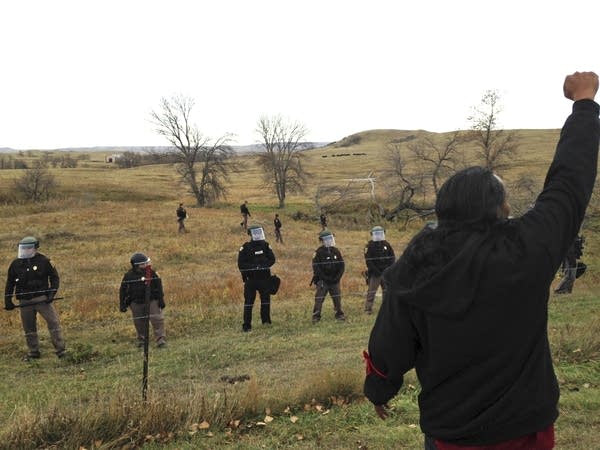Pipeline exec compares Dakota Access protesters to terrorists

A Dakota Access pipeline protester defies law enforcement officers who are trying to force them from a camp on private land in the path of pipeline construction, Thursday, Oct. 27, 2016.
James MacPherson | AP 2016
Go Deeper.
Create an account or log in to save stories.
Like this?
Thanks for liking this story! We have added it to a list of your favorite stories.


